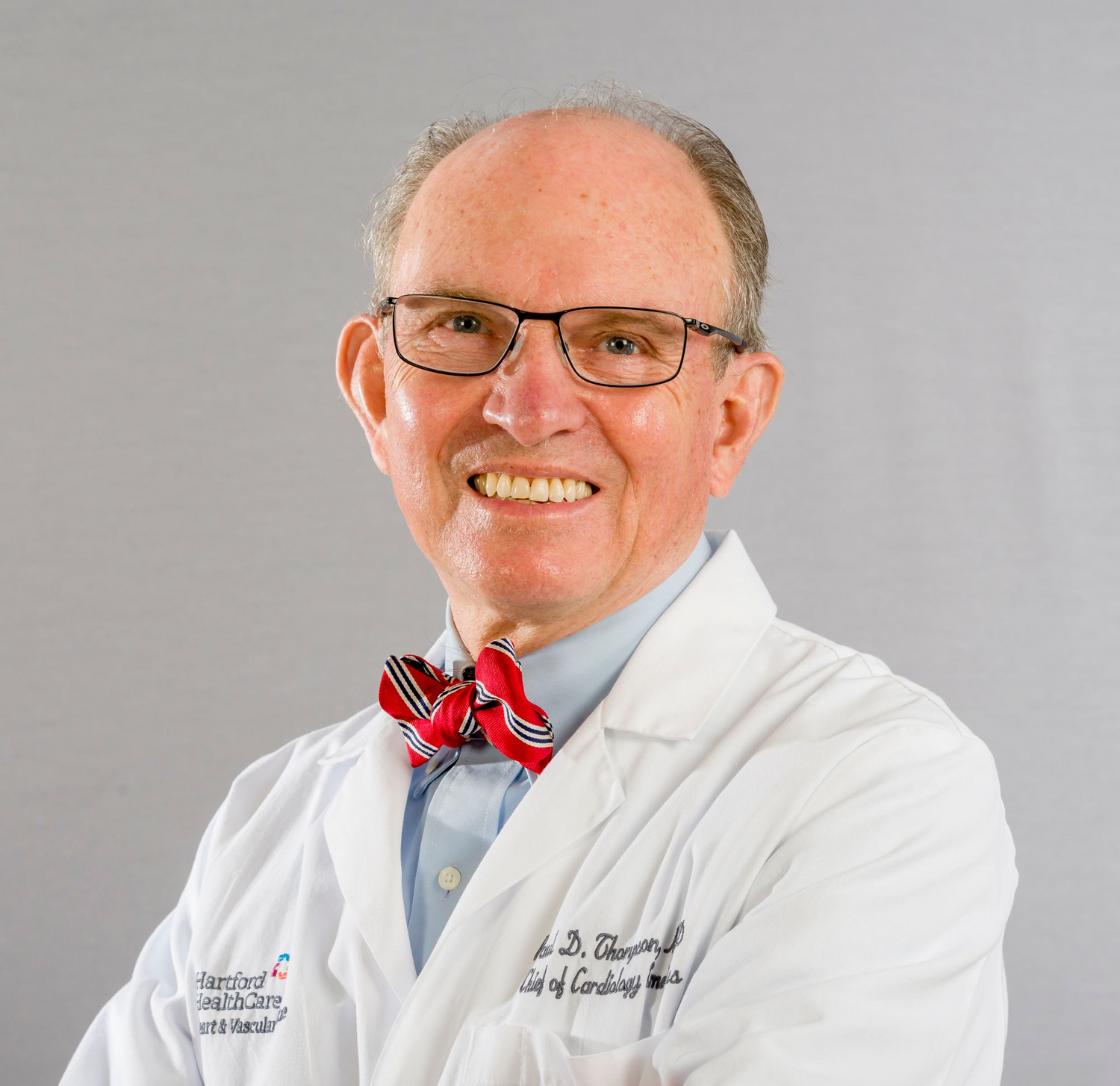Teaching Teaches the Teacher, Where Academia and Clinical Medicine Meet
Dr. Paul Thompson reflects on his experiences as a practicing cardiologist, including having the ability to impact early-career clinicians and what he gains when presented with the opportunity to teach other providers.
Paul D. Thompson, MD

Somewhere during my medical school training, someone told me that if you really want to improve medical care, you should be a good teacher because being a good teacher magnifies your effect. Dr. Thomas Lee’s book on Eugene Braunwald1 states that when Braunwald took over as Chief of Medicine at the Brigham, he considered getting the right residency director as one of his most important task.
His reasoning? Having a strong residency director would create a competitive residency that would attracted the best residents, who would provide better care.The best of the best residents could subsequently be recruited to join the faculty. Having a strong residency program also makes an institution more attractive to attendings who like to teach.
One of the most important effects of teaching, is that the teacher gets smarter. I always say that “Teaching Teaches the Teacher” or T4. Dr. Braunwald also knew that his trainees would go elsewhere across the country and if the residents were well-trained, they would enhance the Brigham’s reputation. It’s an upward spiral. Dr. Braunwald recruited Sheldon Wolff, who became a beloved leader of the Brigham residency program.
All of this makes me wonder if we reward clinical teachers well enough. Good teachers can make a place better. I am not referring only to teaching medical students and trainees. Constantly teaching nurses and other clinicians if done with respect and absolutely no condescension can improve clinical quality. A teaching environment also attracts job candidates to such an institution.
I once worked where we had lots of applicants for our advanced practice nurse practitioner (APRN) positions, despite not paying top dollar. I asked one of our APRN’s why she worked there when she could get more pay at just about any other hospital. She replied that her plan was to work there for a couple of years because the teaching/training was so good. She would then be more desirable at other places. I was disappointed when that APRN left, but had the satisfaction of knowing that what she learned from me would make someplace else, and its care, better.
We should use every opportunity to teach. It makes us and those we work with smarter. I start my clinical consult notes with, “Thank you for asking me to evaluate Mr. Jones. I made the following recommendations for the following reasons”.The goal is to make my consult notes educational, but does it work? I think so. When I first started the lipid management clinic at Hartford Hospital in 1997 approximately 5% of patients sent to me for hypercholesterolemia were hypothyroid. So, my first line would be: “I started Mr. Jones on thyroxine 25 mcg daily because his TSH is elevated indicating that he is hypothyroid. Hypothyroidism decreased LDL receptor activity, which reduces the clearance of LDL-cholesterol and increases LDL blood levels.”
After 24 years of such letters, I almost never have a patient sent to me with hyperlipidemia who is hypothyroid. Are my notes totally responsible? I doubt it, but they may be partly responsible.
You do not have to practice at a teaching hospital to teach. Teaching the nurses and others around you is critically important. It makes their jobs more interesting, but also means that they can help you avoid oversights. Smart staff can also make suggestions to other doctors in the practice to help improve overall medical care.
Dr. Braunwald got it right, as he so often has. Being a good teacher and using every possible opportunity to teach creates an upward spiral for you, your clinical care and knowledge, and your institution. Good teachers should get more credit for the unmeasurable good they do to improve medical care.
1. Lee TH. Eugene Braunwald and the Rise of Modern Medicine.Harvard University Press, Cambridge, MA. 2013